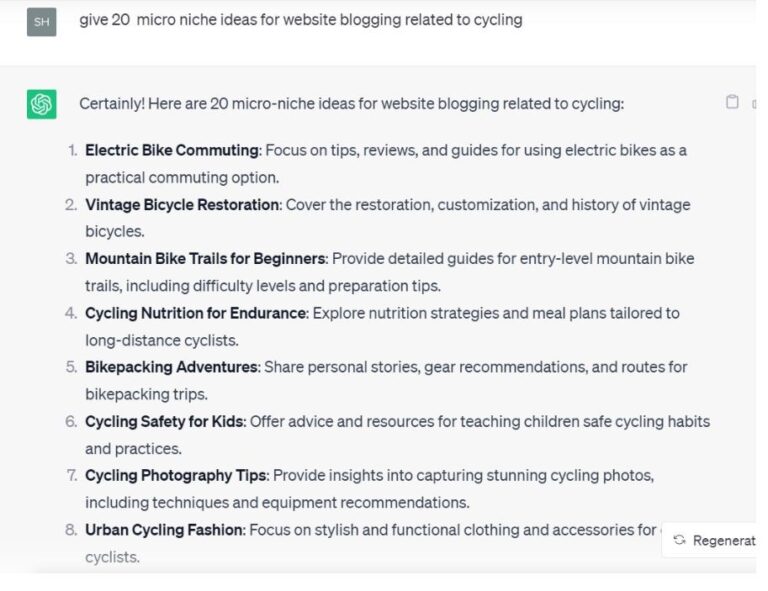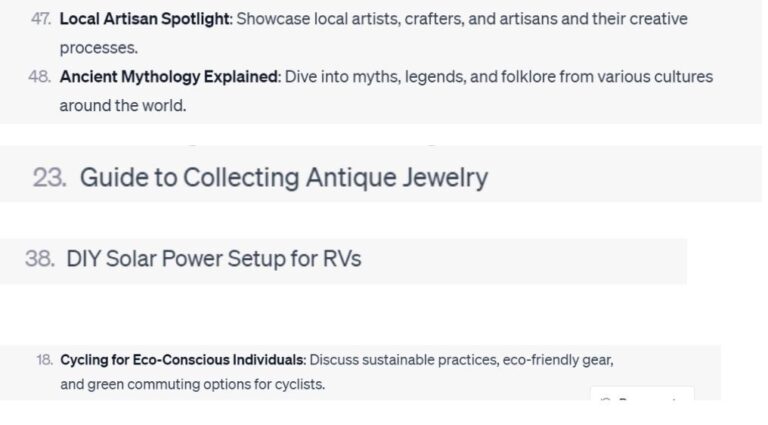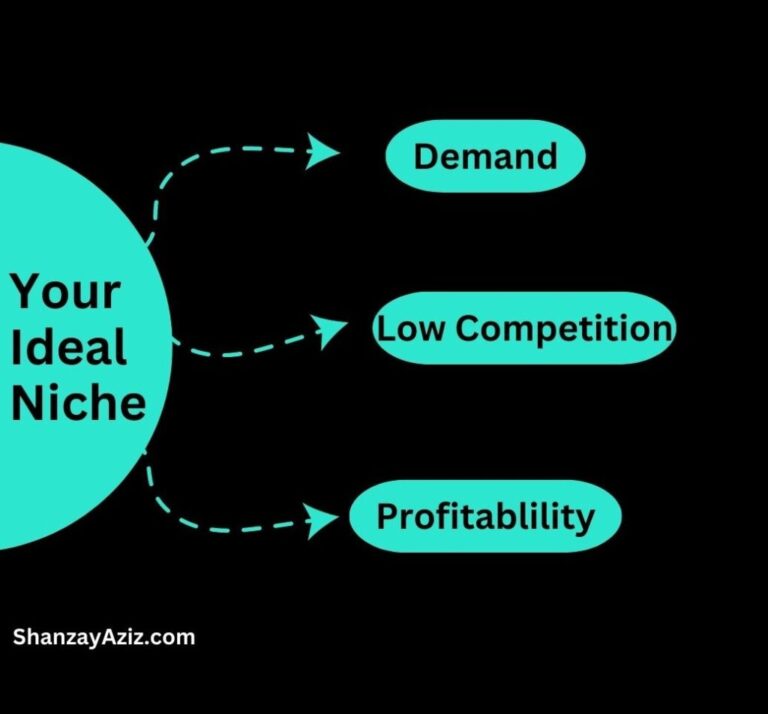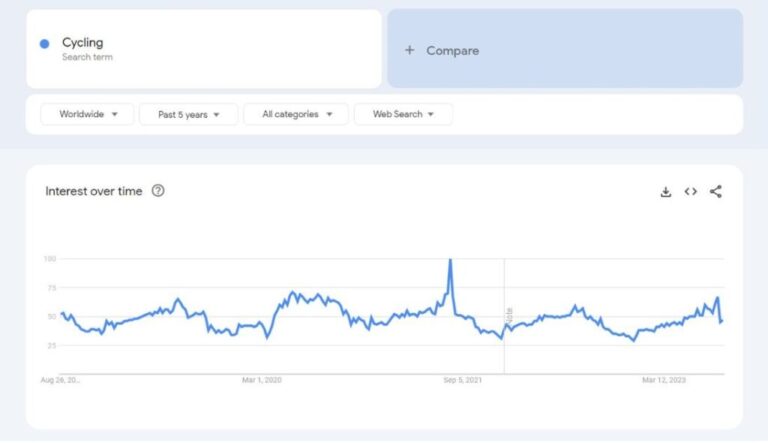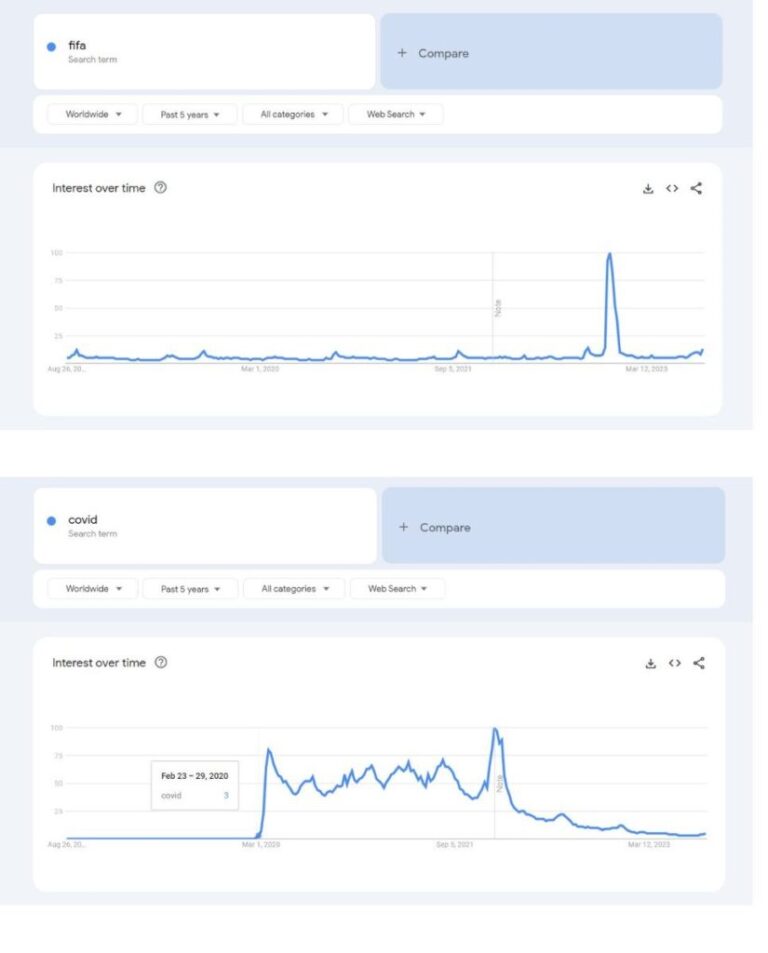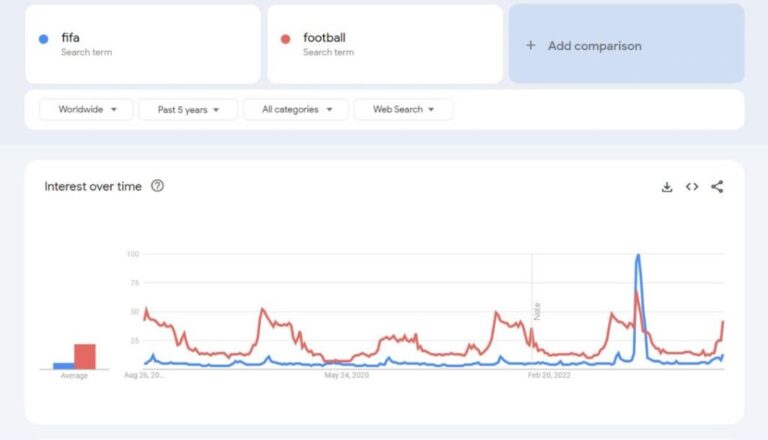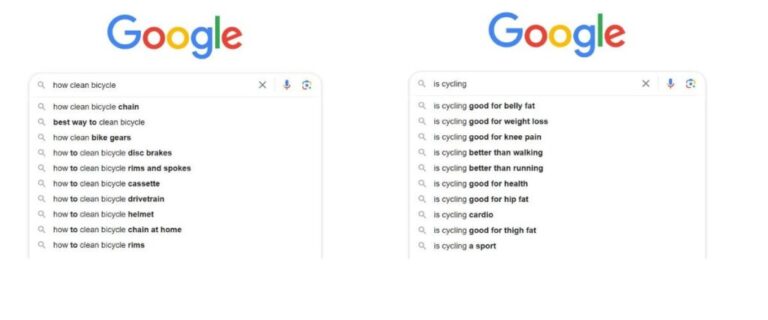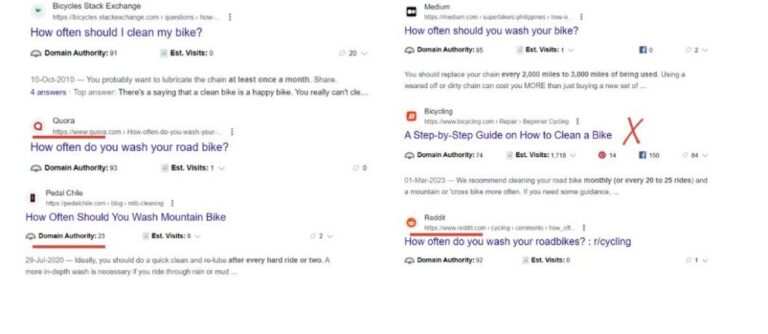“I want to start a blog, but I’m not an expert in anything. How can I pick a niche?”
You’re not alone in asking this question. It’s one of the most common problems new bloggers face.
You can pick a niche and start a blog even if you’re not an expert in something. How? Brainstorm ideas of interest and validate them to find the best.
I’m sharing a step-by-step process on how you can do these 2 things and pick a blogging niche even if you’re not an expert in anything.
Can You Choose A Blogging Niche if you’re not good at anything?
As I said, you don’t have to be an expert. But you should be passionate about that topic. You’ll learn a lot along the way, and you won’t be a beginner anymore. But the key is to be willing to learn.
When writing, you need to make sure you do proper research before giving any information.
This is why it’s important that you pick a niche that personally interests you. You’ll be writing about it daily or weekly for months or maybe years. If the topic doesn’t interest you, you’ll soon quit your blog.
Is it possible for you to start a blog and select a niche if you’re not an expert in anything?
Totally yes. You don’t need to be an expert to start a blog. You need to be willing to learn about that niche. So, if you’re not good at anything, choose a niche that you’re passionate about. A niche you can learn, research and talk about for hours and days without getting tired.
What If I Pick a Niche based on my interests But Lack Knowledge About The topic?
As I said, you don’t have to be an expert. But you should be passionate about that topic. You’ll learn a lot along the way, and you won’t be a beginner anymore. But the key is to be willing to learn.
When writing, you need to make sure you do proper research before giving any information.
This is why it’s important that you pick a niche that personally interests you. You’ll be writing about it daily or weekly for months or maybe years. If the topic doesn’t interest you, you’ll soon quit your blog.
Don’t have expertise in any area? Pick a niche that you can research and write about for hours. And go all in with learning.
As I said, you don’t have to be an expert. But you should be passionate about that topic. You’ll learn a lot along the way, and you won’t be a beginner anymore. But the key is to be willing to learn.
When writing, you need to make sure you do proper research before giving any information.
This is why it’s important that you pick a niche that personally interests you. You’ll be writing about it daily or weekly for months or maybe years. If the topic doesn’t interest you, you’ll soon quit your blog.
2 Steps to Decide A Blogging Niche If You’re Not Good At Anything?
STEP 1: Brainstorm
First, we need to find ideas and then short-list them to only the niches that interest us.
The most common method you’ll find on the internet is this.
Think about your hobbies, interests, past passions or any side project you ever wanted to start. Think of anything that you wanted to learn or do.
For example, I don’t have any hobbies (I know most of you can relate), but if I have to pick a blogging niche and think of my interests. This is what I can come up with.
- Plants and gardening
- Hair care
Ahhh, but this is difficult! Just randomly sitting around and thinking about what interests you. Boring!
We’re living in the ear of AI. Let’s try a new approach!
Go to ChatGPT and write, “Give me a list of 50 niche ideas for website blogging”
You can increase or decrease the number as per your requirement. If you don’t like what you get, you can always ask for more.
If you already have a broad niche in mind, like cooking, cars or anything, skip this prompt and go to the next one.
Short-list the topics that interest you, and let’s dig deep into them.
Here’s your second prompt: “Give 20 micro niche ideas for website blogging related to [your category]”
For the example’s sake, I’m choosing cycling.
Short-list the ideas again, and let’s move to step 2.
As a beginner, you should go with micro niches. They’re easier to build authority in. For example, cycling is a macro niche. A micro niche can be cycling for kids.
STEP 2: Validate
Interest is not the only thing that you have to consider in niche selection. Here’s the caveat. No matter how passionate you are, if you’re writing about something that doesn’t have a demand. You won’t be able to make money.
You can identify some such niches right off the bat. For example
Local artisan isn’t something where we will have products or anything to sell. It’ll be hard to monetize. The same is the case with ancient mythology and antique jewelry.
The last two DIY solar panels for RVs and cycling for eco-conscious people are way too narrow. If you think they’re good micro-niches, no, they’re not. They are way too narrow, and there won’t be enough topics to write on it for a year or so.
We’ll instantly discard any such niches from our list.
Now, for the remaining ones, we need to do a little bit of research.
3 Steps to Validate Your Niche
We’ll be looking at the following three factors
STEP 1: It Should Have a Demand
We want an evergreen topic that will be in demand for the entire year for years to come.
We need to see whether our niche is evergreen. It shouldn’t be dying, and it shouldn’t be seasonal.
One way to do that is through good old common sense. Just ask yourself the following 2 questions. If the answer is no, you’re good to go.
- Is this niche seasonal? Like winter fashion or New Year gift ideas.
- Is its popularity declining? For example, Typewriter
But a better statistical way is to use Google Trends.
So let’s search for cycling. The location is set to worldwide, and the duration is past 5 years.
The graph is pretty consistent, which means it’s not a seasonal topic, and it’s not in decline, which is exactly what we want.
Now, here’s a graph for FIFA and COVID.
Can you see the spikes?
It’s because FIFA is seasonal. It happens once every 4 years. So when it’s around, you’ll get great traffic, but forget that the remaining 3 years.
Likewise, the spike you see in COVID is when the pandemic started, and it ended with the end of the pandemic.
So, if your niche gets a graph like this, you need to go back to the drawing board.
You can compare 2 different keywords as well. Here’s a comparison of football and FIFA. Football is evergreen and can make a good niche.
STEP 2: It Shouldn’t Be Saturated
Let’s be clear about one thing. There’s no niche that’s totally untapped. (Might be those extremely specific ones that we discarded at the start, but we’re not concerned about them.)
You’ll find some level of competition in every niche. What you have to identify is whether there’s a space for a new blog or not.
We’ll be using a free Chrome extension of Ubersuggest. Just type Ubersuggest Chrome extension and download it. We need it to see the Domain Authority of sites.
Once that’s done, search for some questions in your niche. Don’t go for obvious how-to topics. They’ll surely have big sites ranking on them.
Think of questions related to your niche. You can use a free tool Answer The Public. Just put your niche and hit search. It’ll give you a list of questions.
But the easiest way is to just use Google. Type question words and phrases in your search bar with your niche. It’ll auto-suggest you questions.
Now, start searching these questions and analyze the 1st page of Google. You’ll have to check for multiple questions.
There are 2 things to consider: domain authority (DA) and relevancy.
- If low to medium DA sites, forums, Medium and LinekdIn articles, or irrelevant articles are ranking, there’s space for a new blog.
- If big sites with high domain authority and relevant articles are ranking, the niche is saturated.
Let’s see this whole process in action.
I searched for “how often should you clean your bicycle”. I noticed some irrelevant topics (marked with X in the image), 1 medium DA site, 2 forums and a medium article.
All this indicates Google doesn’t have enough relevant and good blog posts on the topic to show.
STEP 3: It Should Be Profitable
How are you planning to monetize your blog?
The most common ways are ads and affiliate marketing. If that’s the case, think of what products are in your niche. For example, in our cycling niche, we have a lot of things to sell, from bicycle gear to cleaning and maintenance products.
If you want to do courses, e-books, or digital products, see if there’s an opportunity in your domain.
If you don’t know what monetization way you should go with, take a sneak peek at how your competitors are making money. Type some popular search terms or questions in your niche and check the related blogs.
- Are they displaying ads?
- Doing affiliate marketing?
- Have their own products or services?
And that’s the end of our niche selection process.
To Wrap It Up
First, you need to brainstorm ideas. Use ChatGPT and my 2 prompts to find niches that align with your interests.
Next, validate them. You have to check for 3 things:
- Demand: You want an evergreen niche
- Saturation: There should be space and low competition
- Profitability: You should be able to monetize it
Use this approach to find your blogging niche. And remember to do thorough research. Don’t rush it. It’s a crucial step that determines your blog’s fate.

